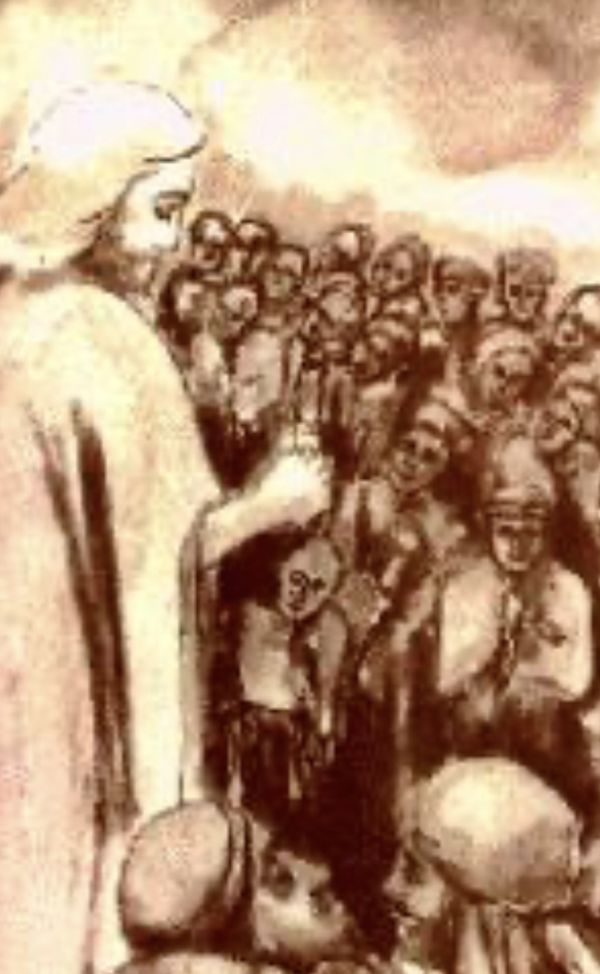(Mk 3:7-12)
The Kingdom of the Father announced by Jesus wasn’t at all tied to a creed any: God had not only a Face different from the ‘Empire system’ and the great Sovereign of religions, but even opposite.
This is the meaning of the happy news that his living Body pressed from everywhere and tossed by the waves [his fraternities, besieged] is always called to proclaim with the recovery works of people in difficulty, excluded from the circle of the strong.
In this very concrete sense, Mk’s Gospel insists on the expulsion of demons - starting from a kind of neutralization that is rooted in a quality of interior gaze and eminent relationships, devoid of instinct to competition. Even where it may seem impossible.
In Christ, the physician of suffering humanity, the things of the soul appear different, and so do relationships. All this leads his group to a different view of itself, history, world, multitudes (vv.7-9) and problems.
And with Him in the middle, his intimates are configured as the core of a society with simple ways, but with solid discernment, and divine relations.
At Mk’s time, in a moment of awareness of the crumbling of the golden age promised by the regime, here is the popular fear and belief in the dominance of unclean spirits over good.
On the other hand, instead of freeing people, all the authorities of the various religious expressions sucked their energies - just spreading fantasies and fears that ended up fueling widespread anguish.
On the basis of the alternative teaching and work of the Lord, the Church intended to free the subjugated people from heart-pounding and nightmare of scruples - through a life proposal that no longer relied on unworthiness and the phobias of the punishment of the gods.
The concrete example of the living Christ [in the «little Boat» here in v.9: the tiny Assembly of the sons] had to not let itself be crushed by epochal anxieties and feelings of guilt.
The false spiritual leaders of time inculcated in the people in need of everything an accentuation of the inadequacy feeling.
Thanks to their miseducation, simple people were not restored to themselves, but made radically insufficient.
For the intimates of the Lord, everyone must instead have ‘access’ - and new life.
And the troubled mob can become coexistence of new harmonies, of other alliances; but starting from its integrated, conciliated weakness - no longer because by way of ignorance and subtraction, or psychosis.
By adhering to Christ, we too have a precious experience: quality of support, vocation, naturalness, personal character, and concreteness, are combined.
So the Lord doesn’t want a “delirious” and empty institution - that can create a stir, or pyramids, and put awe. Not even magniloquent, but reduced to «small boat» [v.9 Greek text].
For this reason, Jesus never endured the quest for fame or exhibitionism (v.12), inconclusive ones.
His non-paternalistic Friendship accompanies us, understands, helps, recovers, and is also a step back.
Here is the Communion able to amalgamate people; with an intimate configuration which brings together and joins. The only convincing and lovable condition.
[Thursday 2nd wk. in O.T. January 23, 2025]












